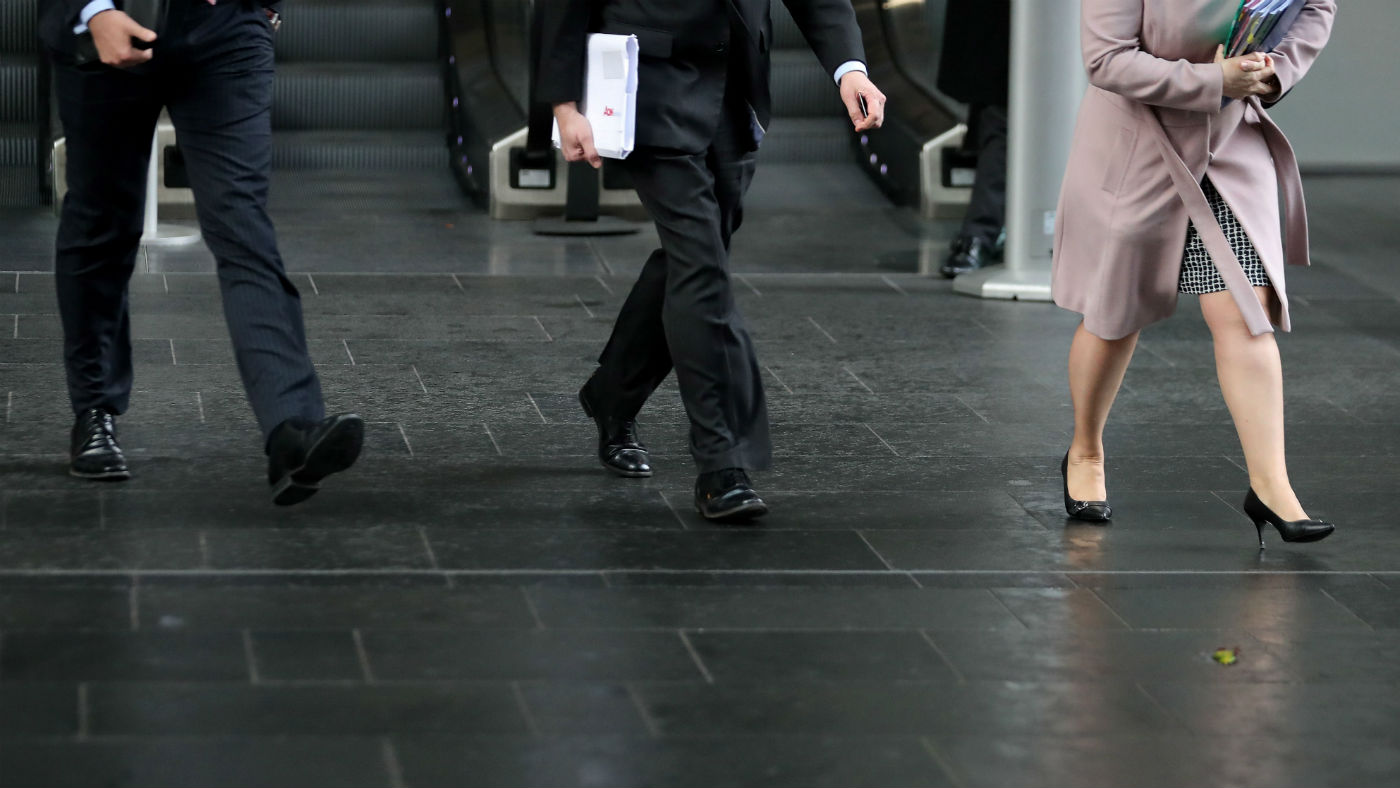Top firms lie about female directors, says IoD chief
Charlotte Valeur speaks out as number of female executive directors falls

A free daily email with the biggest news stories of the day – and the best features from TheWeek.com
You are now subscribed
Your newsletter sign-up was successful
The new chair of the Institute of Directors says Britain’s biggest companies are lying when they say they cannot find enough female or ethnic minority directors.
Speaking to The Guardian ahead of International Women’s Day, Charlotte Valeur, who joined the Institute of Directors in September, criticised large listed companies for not achieving diversity targets.
She said: “Do we really think that’s difficult? It’s a lie. It’s not difficult. I will be very unpopular with FTSE 100 [companies], but I don’t actually mind, because it’s not true that it’s difficult.”
The Week
Escape your echo chamber. Get the facts behind the news, plus analysis from multiple perspectives.

Sign up for The Week's Free Newsletters
From our morning news briefing to a weekly Good News Newsletter, get the best of The Week delivered directly to your inbox.
From our morning news briefing to a weekly Good News Newsletter, get the best of The Week delivered directly to your inbox.
Valeur added: “People don’t like change. Talent of all kinds is out there, but you have to consciously look for it.”
The percentage of women on FTSE 250 boards is increasing very slowly. In the year to June 2018, it rose from 22.8% to 23.7%. But the percentage of female executive directors of FTSE 250 companies fell during that time, from 7.7% in October 2017 to just 6.4%.
Meanwhile, the Daily Telegraph reports that banks will be forced to publish regular updates on how much they invest in businesses run by women as part of a raft of new measures to boost female entrepreneurs.
Lloyds, RBS and UK Finance, the banking trade body, have already committed to the Investing in Women Code, which will force financial institutions to commit to distributing funding with gender balance in mind. The Treasury launches the code today.
A free daily email with the biggest news stories of the day – and the best features from TheWeek.com
According to a Whitehall-commissioned report published this morning, the gender funding gap – the disparity in capital raised by women when starting a business compared with men – means there are one million fewer women entrepreneurs in the UK than there could be.
The report says that there is a massive price to this issue: it says that if the gap continues, it will cost the economy £250bn over the next decade.
-
 6 exquisite homes with vast acreage
6 exquisite homes with vast acreageFeature Featuring an off-the-grid contemporary home in New Mexico and lakefront farmhouse in Massachusetts
-
 Film reviews: ‘Wuthering Heights,’ ‘Good Luck, Have Fun, Don’t Die,’ and ‘Sirat’
Film reviews: ‘Wuthering Heights,’ ‘Good Luck, Have Fun, Don’t Die,’ and ‘Sirat’Feature An inconvenient love torments a would-be couple, a gonzo time traveler seeks to save humanity from AI, and a father’s desperate search goes deeply sideways
-
 Political cartoons for February 16
Political cartoons for February 16Cartoons Monday’s political cartoons include President's Day, a valentine from the Epstein files, and more
-
 How corrupt is the UK?
How corrupt is the UK?The Explainer Decline in standards ‘risks becoming a defining feature of our political culture’ as Britain falls to lowest ever score on global index
-
 The high street: Britain’s next political battleground?
The high street: Britain’s next political battleground?In the Spotlight Mass closure of shops and influx of organised crime are fuelling voter anger, and offer an opening for Reform UK
-
 Is a Reform-Tory pact becoming more likely?
Is a Reform-Tory pact becoming more likely?Today’s Big Question Nigel Farage’s party is ahead in the polls but still falls well short of a Commons majority, while Conservatives are still losing MPs to Reform
-
 Taking the low road: why the SNP is still standing strong
Taking the low road: why the SNP is still standing strongTalking Point Party is on track for a fifth consecutive victory in May’s Holyrood election, despite controversies and plummeting support
-
 What difference will the 'historic' UK-Germany treaty make?
What difference will the 'historic' UK-Germany treaty make?Today's Big Question Europe's two biggest economies sign first treaty since WWII, underscoring 'triangle alliance' with France amid growing Russian threat and US distance
-
 Is the G7 still relevant?
Is the G7 still relevant?Talking Point Donald Trump's early departure cast a shadow over this week's meeting of the world's major democracies
-
 Angela Rayner: Labour's next leader?
Angela Rayner: Labour's next leader?Today's Big Question A leaked memo has sparked speculation that the deputy PM is positioning herself as the left-of-centre alternative to Keir Starmer
-
 Is Starmer's plan to send migrants overseas Rwanda 2.0?
Is Starmer's plan to send migrants overseas Rwanda 2.0?Today's Big Question Failed asylum seekers could be removed to Balkan nations under new government plans